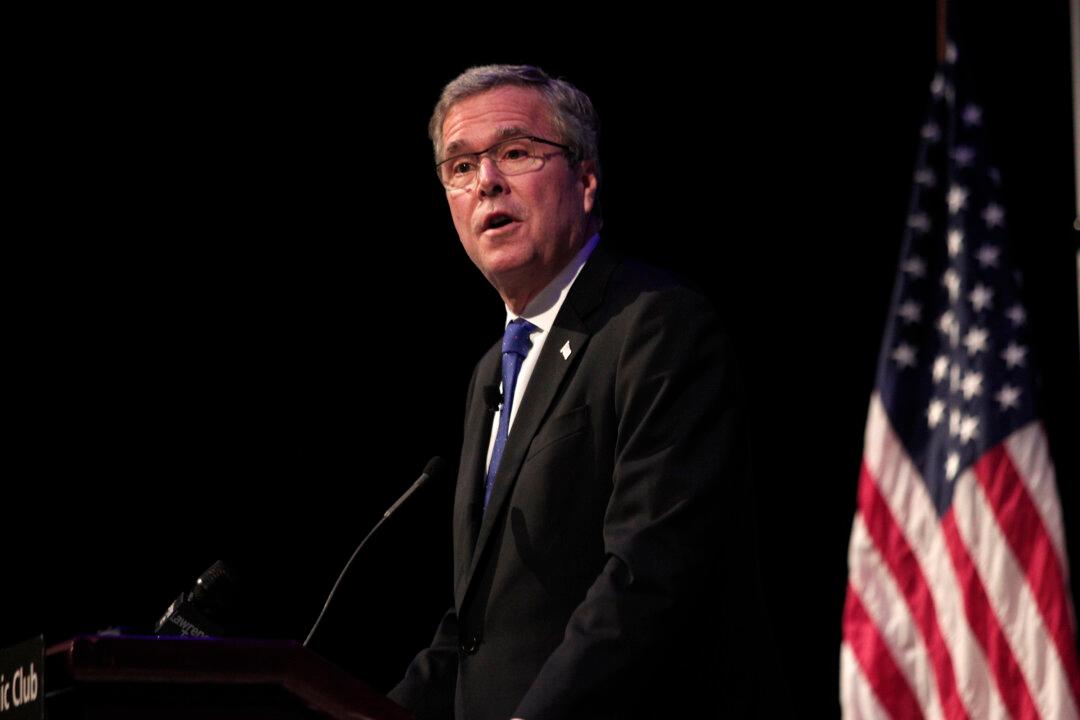As many expected, Mitt Romney’s exit from the 2016 race would precipitate a surge in the popularity of Jeb Bush, an establishment favorite supported by a similar GOP demographic. A new Bloomberg/Saint Anselm College poll has Bush as the front-runner in New Hampshire, being the first choice for 16 percent of likely primary voters, up from 8 percent in November.
Back then, Romney was on top as the first choice for 30 percent of primary voters, and Bush was in fourth place, behind Chris Christie and Rand Paul.
The poll points to Bush as being the candidate who can win the general election. In 28 percent of the responses, Bush is cast as the stronger candidate against Hillary Clinton, whereas Paul, Christie, and Scott Walker only picked up 18 percent apiece. But to beat Hillary, Bush will have to win the primary first, and his stance on immigration is emerging as a stumbling block that could sink his candidacy.
Bush’s support for allowing illegal immigrants to stay in the United States was a deal-breaker issue for 41 percent of respondents, and that number is likely to grow when Bush’s stance on immigration becomes better known throughout the campaign.





